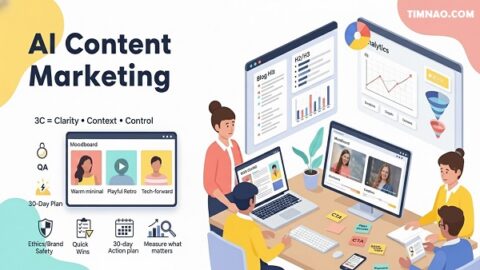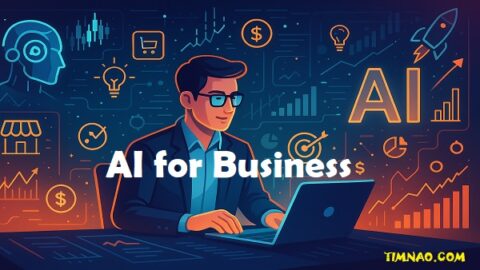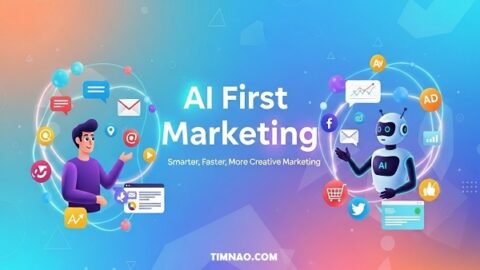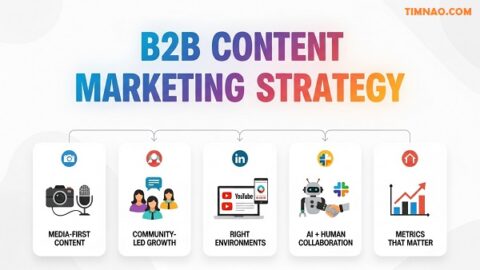12 Amazing Ways Selling with the Machines Will Revolutionize Your Sales in 2025
Selling with the Machines is no longer a futuristic concept—it’s the present reality reshaping the sales landscape at an astonishing pace. Artificial intelligence (AI) is rapidly moving from a buzzword to a fundamental component of successful sales operations worldwide. Forget dusty textbooks and old-school tactics; the integration of AI offers a dynamic, data-driven approach that enhances efficiency, deepens customer relationships, and unlocks unprecedented growth potential.
Imagine sales forecasts becoming incredibly accurate, customer interactions feeling deeply personal, and time-consuming administrative tasks simply vanishing. This isn’t a dream; it’s what Selling with the Machines delivers. Businesses are leveraging AI in sales to automate tasks, gain sharper insights, and empower their teams to focus on what truly matters: building connections and closing deals.
But what does this AI revolution really mean for you, whether you’re a sales professional on the front lines, a manager leading a team, or a business leader charting the course? It means adapting, learning, and embracing the synergy between human intuition and machine intelligence. It means preparing for a world where AI sales tools aren’t just helpful additions but essential components of your AI sales strategy.
This article dives deep into the world of Selling with the Machines. We’ll explore how AI in sales is transforming strategies, enhancing customer interactions, optimizing operations, and providing a definitive competitive edge. Get ready to understand the tools, the tactics, the ethical considerations, and the incredible future that awaits those ready to embrace the power of AI sales automation. Let’s explore 12 amazing ways this revolution is unfolding.
🤖 1. The AI Revolution: Understanding AI’s Expanding Role in Modern Sales
Artificial Intelligence (AI) is fundamentally changing the game in modern sales. It’s not just about fancy algorithms; it’s a practical powerhouse automating tasks, sharpening decision-making, and refining every customer touchpoint. This technological leap isn’t merely boosting efficiency; it’s redefining sales strategies and opening doors to untapped business potential.
AI in sales analyzes vast datasets, uncovering insights humans couldn’t possibly find at the same speed. Gut feelings are being replaced by data-backed guidance. AI sales tools are identifying high-potential leads by sifting through contact lists based on historical data and behavioral patterns, saving time and focusing efforts where they count most. Cold calling is giving way to targeted outreach aimed at warm leads identified through AI sales automation.
Furthermore, AI tackles the crucial challenge of personalization. Today’s customers demand tailored interactions, not generic pitches. AI analyzes customer behavior, allowing sales pros to customize their approach for each individual, building stronger relationships and driving conversions. This level of personalization, once exclusive to elite teams, is now accessible to businesses of all sizes thanks to AI sales tools.
Predictive capabilities are another cornerstone. Sales forecasting, traditionally more art than science, becomes remarkably precise with AI. Machine learning algorithms predict sales trends, enhancing strategic planning and optimizing inventory management. Automation handles mundane tasks like data entry and follow-up reminders, freeing up sales professionals to focus on high-value activities like relationship building and closing deals. According to recent statistics, collaborations between humans and AI agents have shown significant productivity increases, sometimes up to 60% in certain tasks. The global AI in sales market (including AI agents) is booming, projected to reach $7.6 billion in 2025 and potentially $47.1 billion by 2030, with enterprise adoption expected to hit 85% by the end of 2025.
Understanding AI’s role means recognizing its impact on efficiency, personalization, forecasting, automation, competitive analysis, and leadership support. Embracing these advances is key to outperforming competitors and meeting ever-increasing customer expectations in the era of Selling with the Machines.
💡 2. Transforming Sales Strategies: AI-Driven Tactics for Success
Embracing AI in sales isn’t just about adopting new software; it’s about fundamentally reshaping how sales teams operate, strategize, and anticipate market shifts. AI sales automation allows for real-time data analysis and predictive insights, empowering teams to be proactive, not just reactive.
A core AI-driven tactic is hyper-personalization at scale. Advanced algorithms dive deep into customer data – purchase history, Browse patterns, social media interactions – to inform highly tailored communications. One-size-fits-all pitches are obsolete. AI enables customized approaches addressing specific pain points, significantly improving conversion rates and fostering loyalty. Businesses using AI for personalization report enhanced customer engagement and retention.
Lead management becomes significantly more efficient with AI sales tools. Automation handles lead scoring and data entry, while algorithms qualify leads with greater speed and accuracy. Systems can prioritize leads based on conversion likelihood, allowing sales teams to focus their energy on prospects ready to engage, directly impacting the bottom line.
Predictive analytics transforms strategic planning. AI models forecast purchasing behaviors and market trends, enabling accurate demand forecasting, inventory optimization, and proactive customer need anticipation. This predictive power extends to pricing optimization, where AI analyzes market trends, competitor pricing, and customer behavior to suggest optimal price points in real-time, balancing competitiveness and profitability.
Lead nurturing is revitalized through automated, personalized follow-up communications. AI ensures timely, relevant touchpoints, keeping potential customers engaged throughout longer sales cycles. Even competitive analysis is enhanced, with AI tools monitoring rivals’ strategies and customer feedback, allowing businesses to adapt swiftly.
Ultimately, AI-driven sales tactics create a powerful synergy between technology and the human touch. AI handles the data crunching and automation, while sales professionals leverage these insights to build genuine relationships and close deals. This blend amplifies human capabilities, enabling teams to navigate complex buyer journeys and deliver exceptional customer experiences. As organizations implement these tactics, they position themselves as leaders in the new era of Selling with the Machines.
🤝 3. Enhancing Customer Interactions: Personalization Powered by AI
In today’s sales world, the customer experience is king. Selling with the Machines provides the tools to make every interaction count, fostering deeper connections through unprecedented personalization. AI in sales leverages data-driven insights to anticipate customer needs and deliver experiences that resonate emotionally.
AI analyzes vast datasets – past purchases, Browse history, social media activity, even the emotional tone of communications – to understand customers on an individual level. This allows sales teams to craft highly relevant offers and recommendations, making the customer feel understood and valued. Think personalized product suggestions that feel intuitive or AI-powered chatbots providing instant, contextual support 24/7. These AI agents handle routine inquiries, freeing human agents for complex issues requiring empathy and nuanced understanding.
This hyper-personalization extends beyond simple recommendations. AI enables granular customer segmentation, moving beyond broad categories to target smaller groups with highly specific marketing strategies and messaging. It can even analyze the sentiment in customer communications, allowing brands to adjust their tone and approach accordingly, building stronger rapport.
Data is the fuel for this personalization engine, which raises important ethical considerations around privacy and security. Transparency about data usage and robust protection measures are crucial for maintaining customer trust. However, when implemented ethically, AI-driven personalization significantly boosts customer retention. Recognized and valued customers are far more likely to remain loyal and become brand advocates.
Predictive capabilities also enhance interactions. By analyzing data touchpoints, AI can foresee shifts in customer preferences, allowing sales teams to proactively offer relevant products or services before the customer even asks. This proactive stance delights customers and positions the brand as attentive and forward-thinking.
Real-world examples abound. Retailers like Sephora use AI and augmented reality for virtual try-ons, enhancing the online shopping experience. Telecommunication companies deploy AI chatbots that learn from interactions to provide increasingly insightful support. Even small businesses leverage AI to personalize loyalty programs, turning occasional visitors into regulars. The key takeaway is that AI in sales enhances, rather than replaces, the human element. It provides the intelligence to make every interaction meaningful, meeting and anticipating customer expectations to build lasting loyalty.
⚙️ 4. Optimizing Sales Operations: Streamlining with AI Sales Tools
Efficiency is a cornerstone of modern sales success, and AI sales automation is revolutionizing operations. Selling with the Machines means empowering sales teams by automating routine processes, freeing them to focus on strategic thinking and relationship building.
AI sales tools excel at handling time-consuming tasks. Consider AI-based systems for:
- Lead Scoring: Automatically analyzing and prioritizing leads based on conversion probability, ensuring teams focus on the most promising prospects.
- Data Entry & Contact Management: Reducing manual data input into CRM systems, minimizing errors and saving valuable time.
- Initial Outreach & Follow-ups: Automating email sequences and reminders, ensuring consistent engagement without manual effort.
- Scheduling: AI assistants can manage calendars and schedule meetings, simplifying coordination.
AI-infused Customer Relationship Management (CRM) systems, like those offered by Salesforce (with Einstein AI) and HubSpot, go beyond data storage. They analyze interactions, predict customer needs, suggest optimal follow-up actions, and forecast sales likelihood, acting as strategic partners.
Platforms like Gong utilize AI to analyze sales calls, providing insights into effective communication strategies and areas for coaching improvement. This data-driven feedback loop accelerates skill development across the team.
AI also streamlines communication through chatbots and virtual assistants (like those from Conversica or Drift, now part of Salesloft). These tools provide 24/7 support, qualify leads in real-time, and nurture relationships, ensuring no opportunity slips through the cracks.
Furthermore, AI unifies disparate sales tools and platforms, breaking down data silos. Integrated systems allow for a seamless flow of information, providing a comprehensive view of the sales landscape and facilitating better cross-departmental collaboration between sales, marketing, and customer service teams. This ensures consistent messaging and a unified customer journey.
Effective implementation is key. It requires not just deploying the technology but also training teams, fostering an AI-ready culture, and ensuring the tools integrate smoothly with existing infrastructure. Companies must choose AI sales tools that align with specific operational bottlenecks and strategic goals. By doing so, organizations reduce costs, increase sales effectiveness, and ultimately deliver superior customer value in the age of Selling with the Machines.
📊 5. Data-Driven Decision Making: Leveraging AI for Smarter Sales Insights
Intuition has its place, but in the era of Selling with the Machines, data reigns supreme. AI in sales transforms decision-making from guesswork into a strategic, evidence-based process. By harnessing AI algorithms, sales teams can sift through mountains of information to uncover actionable insights, predict customer behavior, and identify market trends with unprecedented accuracy.
AI algorithms excel at identifying patterns and correlations in complex datasets that traditional analysis might miss. This leads to:
- Smarter Lead Prioritization: AI analyzes historical data, customer interactions, and demographics to predict which leads are most likely to convert, optimizing resource allocation.
- Enhanced Personalization: Deep dives into customer data reveal specific preferences and pain points, enabling highly targeted communication strategies that resonate individually and boost conversion rates.
- Accurate Sales Forecasting: Predictive analytics assesses past sales cycles, market conditions, and consumer behavior to generate reliable forecasts, minimizing risks associated with inventory and resource planning. Recent reports indicate companies adopting agentic AI see revenue increases between 6% and 10%.
- Dynamic Pricing Strategies: AI analyzes market data, competitor pricing, and demand fluctuations to suggest optimal price points in real-time, maximizing profitability while remaining competitive.
Leveraging AI sales tools for insights requires a cultural shift towards data-driven decision-making. Sales teams need training not only on using the tools but also on interpreting the outputs and integrating them into their strategies. Data quality is paramount; AI’s effectiveness hinges on clean, accurate, and unbiased data. Organizations must prioritize data governance and break down data silos.
Explainable AI (XAI) tools are emerging to provide transparency into how AI models arrive at conclusions, helping build trust and allowing human oversight to identify and correct potential biases.
The ethical use of data is crucial. Maintaining customer trust requires transparency about data collection and usage, adherence to privacy regulations (like GDPR), and a commitment to fairness.
Ultimately, leveraging AI in sales for better insights provides a significant competitive edge. Businesses become more agile, responsive, and aligned with customer needs. It’s about augmenting human judgment with powerful analytics, creating a robust framework for sustainable success and growth in the complex modern marketplace.
🎓 6. Training and Development: Equipping Sales Teams for the AI Era
The rise of AI in sales necessitates a transformation in how sales teams are trained and developed. Selling with the Machines requires a blend of traditional sales acumen and new-age digital literacy. It’s not just about learning to use new AI sales tools; it’s about fostering an analytical mindset and adapting strategies to leverage AI effectively.
Key skills for the AI-savvy sales professional include:
- Digital Literacy: A foundational understanding of how AI, machine learning, and data analytics work is crucial for effectively using and interpreting AI sales tools.
- Data Analysis & Interpretation: Moving beyond intuition to critically analyze AI-generated insights, identify patterns, and make data-driven decisions. This includes understanding dashboards and key metrics presented by platforms like Salesforce Sales Cloud, HubSpot, or analytics tools.
- Tech Adaptability & Continuous Learning: AI technology evolves rapidly. Sales professionals must be flexible, willing to learn new tools and techniques, and unlearn outdated methods. A culture of continuous learning is vital.
- Enhanced Communication: Effectively translating AI insights into compelling sales conversations and collaborating with AI tools (e.g., providing feedback to improve machine learning models). Tools like Crystal use AI to analyze personality for tailored communication.
- Ethical Judgment: Understanding and navigating the ethical implications of AI, including data privacy, consent, and algorithmic bias, to maintain customer trust.
- Strategic Thinking: Using AI insights not just for tactical execution but for broader strategic planning, identifying new opportunities, and refining go-to-market approaches.
- Collaboration (Human-AI): Learning to work with AI, leveraging its strengths in data processing and automation while applying human skills like empathy, creativity, and complex negotiation.
Integrating AI into sales training programs requires a multi-faceted approach:
- Hands-on Tool Training: Practical workshops on specific AI sales tools the team will use.
- Data Literacy Workshops: Training on interpreting analytics and making data-informed decisions.
- Soft Skills Reinforcement: Emphasizing skills like critical thinking, problem-solving, and empathetic communication, which remain essential.
- Ethical AI Modules: Educating teams on responsible AI use.
- Mentorship Programs: Pairing experienced AI users with newer team members.
- Creating a Learning Culture: Encouraging experimentation and knowledge sharing.
Investing in training ensures sales teams can confidently harness the power of AI in sales, turning technological advancements into tangible performance improvements and maintaining a competitive edge.
🤔 7. Ethical Considerations and Challenges: Navigating AI Responsibly
While Selling with the Machines offers immense potential, it also introduces significant ethical considerations and challenges that businesses must navigate carefully. Building and maintaining customer trust is paramount, and the responsible use of AI in sales is fundamental to this.
A primary concern is AI bias. AI systems learn from data, and if that data reflects historical biases (e.g., towards certain demographics), the AI can perpetuate or even amplify them. This can lead to unfair targeting, biased lead scoring, or discriminatory pricing, harming customer relationships and potentially leading to legal issues. Addressing this requires:
- Diverse & Representative Data: Ensuring training datasets are carefully curated and audited for bias.
- Algorithmic Transparency: Understanding how AI models make decisions (using explainable AI or XAI where possible).
- Human Oversight: Implementing checks and balances where humans review and can override AI-driven decisions, especially sensitive ones.
- Regular Audits: Continuously monitoring AI systems for biased outcomes.
Data privacy and security are critical. AI sales tools often require access to vast amounts of customer data. Businesses have an ethical and legal obligation to:
- Obtain Explicit Consent: Clearly informing customers how their data will be used and obtaining permission.
- Ensure Data Security: Implementing robust measures to protect data from breaches.
- Comply with Regulations: Adhering to data privacy laws like GDPR, CCPA, etc.
Transparency in AI usage is key. Customers should ideally understand when they are interacting with an AI (like a chatbot) versus a human. Hiding the use of AI can feel deceptive and erode trust. Similarly, transparency about how AI influences recommendations or pricing fosters a sense of fairness.
Accountability is another challenge. When an AI system makes an error or a biased decision, who is responsible? Organizations need clear lines of accountability and protocols for addressing AI-related issues.
Furthermore, the potential for job displacement or the fear of it among sales teams must be addressed through open communication, retraining initiatives, and emphasizing AI’s role as an augmentation tool rather than a replacement.
Ethical considerations aren’t just about compliance; they are about building a sustainable, trustworthy business. Organizations that prioritize ethical practices in their AI sales strategy, embedding fairness, transparency, and accountability into their operations, will not only mitigate risks but also build stronger, more loyal customer relationships in the long run.
✨ 8. Case Studies: Real-World Success with AI in Sales
The theoretical benefits of Selling with the Machines come alive through real-world examples. Companies across various industries are achieving remarkable results by strategically implementing AI in sales. These stories highlight the tangible impact of AI sales tools and AI sales automation on efficiency, customer engagement, and revenue growth.
- Salesforce: Their Einstein AI platform provides predictive lead scoring and opportunity insights within their CRM. Customers report increased conversion rates and more efficient sales cycles by focusing efforts on high-probability leads identified by AI.
- HubSpot: Integrates AI for predictive lead scoring, content optimization, and automating tasks within its CRM. This allows sales teams to spend less time on administration and more time engaging qualified prospects.
- Amazon: A pioneer in using AI for personalized recommendations, dynamic pricing, and inventory management. Their recommendation engine, analyzing vast customer behavior data, reportedly drives a significant portion of their revenue, demonstrating the power of AI personalization at scale.
- Gong: Uses AI to analyze sales conversations (calls and emails), providing actionable insights for coaching and strategy refinement. Companies using Gong report improvements in ramp time for new reps and higher email response rates due to optimized messaging.
- Verizon: Reported a nearly 40% increase in sales after deploying a Google AI sales assistant to support customer service representatives, allowing agents to handle calls more efficiently and focus more on sales activities.
- Microsoft: Showcases numerous customer stories where tools like Microsoft 365 Copilot and Azure OpenAI Service are driving significant ROI (e.g., Aberdeen City Council projecting 241% ROI, Arthur D. Little achieving 50% faster content curation). Companies like ANS use Copilot agents to streamline selling by summarizing customer interaction data.
- Sephora: Their Virtual Artist app uses AI and AR to allow virtual makeup try-ons, enhancing customer engagement and informing purchase decisions, leading to increased sales.
- Coca-Cola: Leverages AI to analyze social media trends and sales data for targeted marketing campaigns and predicting consumer preferences for new flavors or regional campaigns.
- Financial Services (JPMorgan Chase): Uses AI for predicting market trends, enhancing trading strategies, and improving risk management.
- Insurance (Progressive): Employs AI for risk assessment and personalized policy recommendations based on customer behavior analysis.
These examples underscore that successful AI in sales implementation goes beyond just technology; it involves strategic alignment, process changes, and often, a cultural shift. The lessons learned include the importance of clean data, adaptability, human oversight, continuous training, and strong leadership commitment. These success stories provide both inspiration and practical blueprints for organizations embarking on their Selling with the Machines journey.
🛠️ 9. Essential AI Tools and Platforms Shaping Modern Sales
Navigating the expanding universe of AI sales tools is crucial for building an effective AI sales strategy. These platforms offer diverse capabilities, from automating routine tasks to delivering profound customer insights. Understanding the popular solutions helps businesses evaluate and select the right tools for their specific needs.
Here’s an overview of prominent categories and examples:
- AI-Powered CRMs: These platforms embed AI directly into core sales workflows.
- Salesforce Sales Cloud (with Einstein): Offers predictive lead scoring, opportunity insights, activity automation, and conversation intelligence.
- HubSpot Sales Hub: Provides AI features for lead scoring, sales automation, email tracking, and reporting. Recently introduced “Breeze” AI agents for various tasks.
- Pipedrive: Includes AI features for automating tasks and providing sales assistance.
- Conversation Intelligence: Tools that analyze sales calls and emails for insights.
- Gong: Records, transcribes, and analyzes conversations to identify winning tactics, coach reps, and improve forecasting. Offers “Gong Agents” for automated tasks.
- Salesloft (including Drift): Offers conversation intelligence alongside sales engagement features, now incorporating Drift’s conversational AI for website engagement and lead qualification.
- Outreach: Similar to Gong and Salesloft, focusing on analyzing interactions to improve sales execution.
- Sales Intelligence & Prospecting: Platforms providing data and insights for finding and engaging leads.
- ZoomInfo: Offers extensive B2B database with intent data and AI features (like ZoomInfo Copilot) to identify and prioritize prospects.
- Apollo.io: Combines a large B2B database with sales engagement tools and AI-driven prospecting features.
- AI Sales Assistants & Chatbots: Automating engagement and administrative tasks.
- Conversica: Provides AI-powered “Revenue Digital Assistants” that engage leads via email, SMS, and chat in multiple languages.
- Drift (now part of Salesloft): Specializes in conversational marketing and sales, using AI chatbots to qualify website visitors in real-time.
- Various CRM-integrated chatbots.
- Predictive Analytics & Forecasting: Tools focused specifically on analyzing data to predict future outcomes.
- Clari: Focuses on revenue operations and intelligence, using AI for pipeline management and forecasting accuracy.
- Many CRMs (like Salesforce Einstein) have strong predictive capabilities built-in.
- Personalization Tools:
- Crystal: Uses AI to predict personality traits based on online data, helping tailor communication styles.
Evaluating the Right Tools:
- Identify Needs: What specific sales processes or bottlenecks do you need to address (e.g., lead qualification, forecasting, personalization)?
- Integration: Does the tool integrate seamlessly with your existing CRM and tech stack?
- Scalability: Can the tool grow with your business?
- Ease of Use: Will your team be able to adopt and use it effectively? Training and support are crucial.
- Features & Capabilities: Does it offer the specific AI functionalities you need (predictive analytics, NLP, automation)?
- Cost & ROI: Evaluate the investment against the potential benefits (efficiency gains, increased revenue).
- Vendor Support & Reputation: Check reviews and case studies.
Choosing the right AI sales tools is a strategic decision. By carefully evaluating options based on specific needs and ensuring proper implementation and training, businesses can effectively leverage AI in sales to gain a significant competitive advantage.
🚀 10. The Future Trajectory: What’s Next for AI in Sales?
The integration of AI in sales is not a final destination but a rapidly evolving journey. The future promises even more sophisticated applications, deeper integration, and a greater emphasis on the synergy between human sellers and intelligent machines. Staying ahead means understanding emerging trends and preparing for the next wave of AI sales strategy innovations.
Key Emerging Trends:
- Hyper-Automation: AI will automate increasingly complex sales tasks beyond simple data entry, potentially handling multi-step workflows, proposal generation drafts, and advanced scheduling coordination.
- More Sophisticated Predictive & Prescriptive Analytics: AI won’t just predict what might happen (e.g., a deal closing) but will increasingly prescribe what actions to take for the best outcome, offering specific guidance on next steps, content to share, or pricing adjustments.
- Enhanced Natural Language Processing (NLP) & Generation (NLG): AI will become even better at understanding nuanced human language (sentiment, intent) and generating highly personalized, human-like communication (emails, chat responses, content summaries). Expect AI agents to handle more sophisticated customer interactions.
- AI-Driven Coaching & Skill Development: Conversation intelligence tools will offer even more personalized, real-time coaching prompts during calls and provide deeper insights into individual rep strengths and weaknesses for targeted training.
- Generative AI Integration: Tools like ChatGPT and specialized B2B models will be further integrated into sales workflows for content creation (emails, pitches), research summarization, and brainstorming. Centralized “GenAI Operations” teams may become more common in organizations.
- Improved Explainability (XAI): As AI decisions become more critical, there will be a greater push for tools that can clearly explain their reasoning, fostering trust and enabling better human oversight.
- AI in Sales Enablement: AI will play a larger role in curating and recommending the most relevant content, training materials, and competitive intelligence to reps exactly when they need it.
- Ethical AI Frameworks: Increased focus on developing and implementing robust ethical guidelines, bias mitigation techniques, and transparent AI practices will be crucial for long-term adoption and trust.
- AI Agent Ecosystems: Purpose-built AI agents designed for specific tasks (prospecting, data enrichment, meeting summaries) will work together within platforms like Gong or Salesforce, creating a more cohesive automated workflow.
Preparing for the Future:
- Cultivate Adaptability: Foster a culture where change is embraced, and continuous learning is prioritized.
- Invest in Upskilling: Focus training on data literacy, AI tool usage, ethical considerations, and skills AI cannot replicate (empathy, complex problem-solving).
- Stay Informed: Monitor AI trends, attend industry events, and engage with technology partners.
- Pilot and Iterate: Experiment with new AI tools and approaches on a smaller scale before broad deployment.
- Focus on Human-AI Collaboration: Design processes that leverage the best of both human intelligence and machine efficiency.
- Prioritize Ethics: Build ethical considerations into your AI sales strategy from the outset.
The future of Selling with the Machines involves AI becoming an indispensable co-pilot for sales professionals, augmenting their abilities and driving unprecedented levels of personalization, efficiency, and strategic insight.
🧭 11. Leadership and Change Management: Steering the AI Adoption Journey
Successfully integrating AI in sales requires more than just deploying technology; it demands strong leadership and effective change management. Guiding sales teams through the transition to Selling with the Machines is critical for realizing the full potential of AI sales tools and minimizing disruption.
Key Leadership Strategies:
- Establish a Clear Vision: Articulate why the organization is adopting AI, connecting it to broader business goals and team benefits. Paint a compelling picture of the future where AI augments human capabilities, automates mundane tasks, and unlocks new opportunities, rather than simply replacing jobs.
- Communicate Transparently & Frequently: Keep the team informed about the AI adoption roadmap, progress, challenges, and successes. Foster open dialogue, actively solicit feedback, and address concerns and fears (especially around job security) honestly and empathetically.
- Lead by Example: Demonstrate a willingness to learn, adapt, and use AI tools yourself. Show resilience in the face of inevitable setbacks during implementation, framing them as learning opportunities.
- Empower Through Training & Development: Invest heavily in equipping the team with the necessary skills to use AI effectively and confidently. Tailor training to different roles and comfort levels with technology.
- Foster a Culture of Experimentation & Agility: Encourage teams to try new AI tools and approaches without fear of failure. Adopt an iterative mindset, allowing for adjustments based on feedback and results.
- Promote Collaboration: Break down silos between sales, IT, marketing, and operations. Create cross-functional teams to ensure AI initiatives are well-integrated and benefit from diverse perspectives.
- Provide Support & Resources: Ensure adequate technical support is available. Consider mentorship programs where AI champions can help colleagues navigate the learning curve.
- Recognize and Reward Adoption: Celebrate early wins and acknowledge the efforts of individuals and teams embracing the new tools and processes. Positive reinforcement encourages further adoption.
- Focus on the Human Element: Continuously reinforce the value of human skills like relationship-building, strategic thinking, and empathy, positioning AI as a tool to enhance these capabilities.
- Set Realistic Expectations & Milestones: Implement AI adoption in phases, setting achievable goals and celebrating progress along the way. Avoid overwhelming the team with too much change too quickly.
Effective leadership during AI transitions builds trust, reduces resistance, and ensures that the team sees AI not as a threat, but as a powerful partner. By guiding the change thoughtfully, leaders can transform their sales organizations and fully capitalize on the benefits of Selling with the Machines.
🏆 12. Gaining the Competitive Edge: AI as Your Sales Differentiator
In today’s fiercely competitive market, simply having a good product or service isn’t enough. Selling with the Machines offers a powerful pathway to differentiation, enabling businesses to stand out, attract customers, and build sustainable advantages using AI in sales.
How AI becomes a differentiator:
- Unparalleled Customer Insights: AI analyzes customer data at a scale and depth impossible manually. This allows businesses to understand needs, predict behavior, and anticipate desires before competitors do, enabling proactive and highly relevant engagement. Companies like ZoomInfo provide AI-fueled insights to target the right accounts at the right time.
- Hyper-Personalization at Scale: Moving beyond basic segmentation, AI crafts truly individualized experiences – tailored content, unique offers, personalized communication styles (aided by tools like Crystal). This deep level of personalization builds stronger emotional connections and loyalty that competitors struggle to match.
- Superior Operational Efficiency: AI sales automation streamlines workflows, reduces administrative burden, and speeds up processes like lead qualification and follow-up. This frees up sales teams to focus on strategic selling and relationship building, allowing them to achieve more with the same resources, creating a cost and speed advantage.
- Enhanced Agility and Adaptability: AI provides real-time insights into market shifts and customer sentiment. Businesses using AI can pivot strategies faster, adjust pricing dynamically, and respond to opportunities or threats more quickly than those relying on slower, traditional analysis.
- Predictive Prowess: Accurate AI-driven forecasting allows for better resource allocation, inventory management, and strategic planning. Being able to reliably predict demand or identify churn risks provides a significant advantage in navigating market volatility. Platforms like Clari focus heavily on AI for forecasting.
- Innovation in Sales Approaches: AI can uncover non-obvious patterns and correlations, sparking new ideas for sales strategies, engagement tactics, or even new service offerings. It empowers teams to experiment and innovate based on data.
- Improved Sales Team Performance: AI tools provide data-driven coaching (e.g., Gong), identify skill gaps, and share best practices, leading to a more effective and consistent sales force overall.
Maintaining the Edge:
Achieving differentiation with AI isn’t a one-off task. It requires:
- Continuous Improvement: Regularly refining AI models and processes based on performance data.
- Staying Current: Keeping abreast of the latest AI sales tools and trends.
- Strategic Integration: Ensuring AI aligns with core business objectives, not just used tactically.
- Human-AI Synergy: Balancing AI’s power with human intuition and creativity.
- Ethical Foundation: Building trust through responsible AI deployment.
By strategically leveraging AI in sales, businesses can create unique value propositions, deliver exceptional customer experiences, and operate with greater efficiency and foresight – solidifying their position as leaders in the era of Selling with the Machines.
Conclusion: Embracing Your Future with AI in Sales
The journey into Selling with the Machines is an ongoing evolution, not a final destination. We’ve explored the transformative power of AI in sales – its ability to revolutionize strategies, personalize interactions, streamline operations, empower decision-making, and provide a distinct competitive advantage.
It’s clear that AI sales tools and AI sales automation are no longer optional extras but essential components of a modern, successful AI sales strategy. However, the true magic happens at the intersection of technology and human ingenuity. AI enhances, augments, and empowers sales professionals, freeing them from mundane tasks to focus on the uniquely human aspects of selling: empathy, creativity, strategic thinking, and building genuine relationships.
As you move forward, remember the importance of strategic implementation, continuous learning, and ethical responsibility. Choose the right tools for your specific needs, invest in training your teams, foster a culture of adaptability, and always prioritize building trust with your customers.
The future of sales belongs to those who embrace this synergy – leveraging the analytical power of AI while celebrating the irreplaceable value of the human touch. The resources and insights discussed provide a roadmap, but the path you forge with AI in sales will be your own. Embrace the possibilities, lead with vision, and get ready to redefine success in this exciting new chapter. The machines are here to help you sell smarter, faster, and more effectively than ever before.
Reference video:









